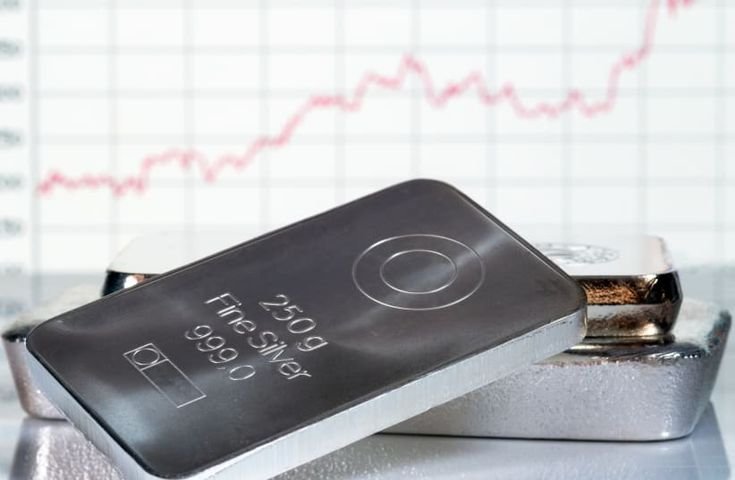As President-elect Donald Trump prepares for his return to the White House, a series of critical appointments have been announced, shaping the future of defense, technology, and cryptocurrency policy in the United States. These selections, made public on Truth Social and other platforms, highlight Trump’s focus on innovation, military modernization, and the burgeoning digital asset space. With less than a month until his inauguration, these appointments provide a glimpse into the priorities of his administration.
Stephen Feinberg: The Pentagon’s Second-in-Command
Billionaire Stephen Feinberg, co-founder of Cerberus Capital Management, has been named as Trump’s pick for Deputy Secretary of Defense. Feinberg’s role will place him in operational control of the Pentagon, a critical position given the strategic challenges the U.S. faces globally. His nomination comes as Trump’s choice for Secretary of Defense, Pete Hegseth, encounters potential resistance in the Senate.
Feinberg’s extensive experience in private equity and defense contracts makes him a prominent figure in military-industrial circles. Cerberus Capital Management, under Feinberg’s leadership, has invested heavily in hypersonic missile technology, a sector pivotal to modern military advancements. This dual civilian and military application underscores Feinberg’s strategic importance in steering Pentagon operations.
Michael Kratsios to Lead Technology Policy
Trump has nominated Michael Kratsios, a former managing director of Scale AI, to lead the Office of Science and Technology Policy (OSTP). This Senate-confirmed position places Kratsios at the helm of the administration’s tech policy initiatives. Kratsios brings experience from Trump’s first administration, where he served in technology-related roles, and has recently been involved in Elon Musk’s Department of Government Efficiency initiative.
Kratsios will oversee a wide range of tech policies, including artificial intelligence, cybersecurity, and innovation in emerging technologies. His leadership will also play a role in fostering collaboration between Silicon Valley and federal agencies, a relationship that has grown increasingly critical in addressing national security and technological competitiveness.
Crypto Policy Team: A Strategic Shift
Trump’s administration is making a bold statement by forming a dedicated crypto policy team, signaling the growing importance of digital assets in U.S. economic and regulatory strategies. The team will include:
- Lynne Parker: Former deputy to Kratsios, Parker will direct the Presidential Council of Advisers for Science and Technology (PCAST).
- Bo Hines: A former athlete and Republican congressional candidate, Hines will lead the newly established Crypto Council.
Both councils will report directly to David Sacks, the newly appointed “crypto czar.” Sacks, who has been a vocal advocate for cryptocurrency and blockchain technology, will split his time between the White House and Silicon Valley. This structure reflects the administration’s intent to integrate insights from tech hubs into national crypto policies.
Defense Leadership: New Faces in Critical Roles
Trump has announced several key appointments in the Department of Defense, signaling a robust focus on military innovation and modernization. These include:
- Michael Duffey as Undersecretary of Acquisition and Sustainment, tasked with overseeing procurement and supply chain strategies.
- Emil Michael as Undersecretary of Research and Engineering, responsible for driving technological advancements in defense.
- Keith Bass as Assistant Secretary for Health Affairs, focusing on the health and welfare of military personnel.
- Joe Kasper as Chief of Staff to Pete Hegseth, providing strategic counsel to the Secretary of Defense nominee.
These appointments reflect a balanced approach to addressing traditional defense challenges while embracing cutting-edge technology and research.
Stephen Feinberg’s Vision for the Pentagon
Feinberg’s appointment as Deputy Secretary of Defense places him at the heart of day-to-day operations at the Pentagon. With a net worth of $7.7 billion, Feinberg has the financial and managerial acumen to navigate the complexities of defense procurement and technology integration. His companies’ investments in hypersonic missiles highlight a forward-thinking approach to addressing modern warfare needs.
However, Feinberg’s nomination is not without controversy. Cerberus Capital Management’s defense contracts and private equity dealings have raised concerns about potential conflicts of interest. Feinberg’s ability to maintain transparency and prioritize national security will be closely scrutinized as he steps into this pivotal role.
Strengthening U.S. Crypto Policy
The creation of a dedicated crypto team underscores the administration’s recognition of digital assets as a cornerstone of future economic policy. David Sacks, as crypto czar, will oversee the development of policies aimed at fostering innovation while addressing regulatory challenges. The involvement of Lynne Parker and Bo Hines adds depth to this initiative, bringing expertise in science, technology, and grassroots political engagement.
The establishment of the Crypto Council reflects a strategic move to position the U.S. as a leader in blockchain technology and digital finance. By bridging the gap between policymakers and tech innovators, the administration aims to create a balanced framework that encourages growth while ensuring regulatory compliance.
Beyond Defense and Technology: Additional Appointments
Trump’s latest announcements extend beyond defense and technology, encompassing key positions in other critical areas:
- Scott Kupor, managing partner at Andreessen Horowitz, will lead the Office of Personnel Management, ensuring efficient staffing and administration.
- Mauricio Claver-Carone has been named the State Department’s special envoy for Latin America, signaling a focus on strengthening regional ties.
- Callista Gingrich will serve as ambassador to Switzerland, a role critical for maintaining diplomatic relations with Europe.
- Stephen Vaden has been appointed as Deputy Secretary of Agriculture, tasked with advancing agricultural policies and programs.
These appointments highlight Trump’s comprehensive approach to assembling a team capable of addressing a wide range of domestic and international challenges.
The Role of the Defense Department
Under the leadership of Pete Hegseth and Stephen Feinberg, the Department of Defense is poised for a period of transformation. The integration of advanced technologies, such as hypersonic missiles and AI-driven defense systems, will be a priority. Michael Duffey’s role in acquisition and sustainment will ensure that these technologies are procured efficiently, while Emil Michael’s focus on research and engineering will drive innovation.
Health affairs, led by Keith Bass, will address the well-being of military personnel, ensuring they are equipped to meet the demands of modern warfare. The department’s focus on both human and technological resources reflects a balanced approach to national defense.
Implications for the Tech Industry
Kratsios’ appointment as OSTP director and the formation of a dedicated crypto team indicate a shift toward greater collaboration between the federal government and the tech industry. This partnership will likely foster innovation in artificial intelligence, blockchain technology, and cybersecurity.
The inclusion of figures like David Sacks and Scott Kupor further underscores the administration’s intent to leverage expertise from Silicon Valley. This integration aims to ensure that U.S. policies remain aligned with technological advancements, enhancing the country’s competitiveness on the global stage.
Conclusion
President-elect Donald Trump’s latest appointments highlight a clear focus on defense, technology, and cryptocurrency policy. Stephen Feinberg’s leadership at the Pentagon, coupled with Michael Kratsios’ direction of tech policy, signals a commitment to modernization and innovation. The establishment of a crypto team led by David Sacks underscores the administration’s recognition of digital assets as a key component of future economic strategies.
As Trump’s inauguration approaches, these appointments set the tone for an administration that seeks to balance traditional governance with forward-looking initiatives. With a team comprising experienced professionals and industry leaders, the stage is set for significant developments in defense, technology, and beyond. The next few months will reveal how these appointments shape policy and impact the U.S.’s position on the global stage.
ALSO READ: Is Trump the Most Crypto-Friendly President in History?




